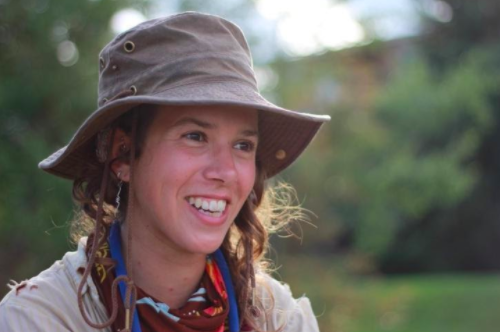by Dalal Hanna
In October of 2019, I received an Excellence award from the Quebec Center for Biodiversity Sciences to attend the Ecosystem Service Partnership World Conference, in Hannover, Germany. This gathering brings together experts from around the world working in ecosystem service research to discuss the latest advancements in this field, and workshop important future research directions. Returning home from this journey, filled with new ideas and thoughts related to the concept of ecosystem services, it occurred to me that the concept may not be quite as intuitive or popular as scientists working in this field imagine it to be. So… I decided to write this short blog post to share my interpretation of what exactly is meant by the term ecosystem services, and why I think it’s important.
Nature provides us humans with many benefits, like clean water to drink, areas to recreate, and a stable climate. These diverse benefits are what some scientists like to call ecosystem services. Another way to think of this concept is as the different contributions nature makes to people. And these contributions are diverse. They span from very tangible things all humans think about and hope to benefit from on a daily basis, like clean drinking water, to things that are invisible but essential, such as the regulation of nutrients found in soil. And the list goes on… Insects and other living beings pollinate plants, which in turn provide us humans with the food we need to survive. Rivers flow, creating incredible rapids that attract thousands of people to descend them, or providing space to generate electricity. Forests grow, filtering the air we breathe, and so on… As humans, we join this intricate web of ecosystems and the organisms living in them, benefiting greatly from having access to our home here on Earth.
Nature also provides numerous benefits to humans that are a little more abstract, like a sense of place. I strongly feel this benefit when I’m in the Boreal Forest, the ecosystem where I spent my childhood summers. While standing in a forest with a mix of spruce trees and balsam firs, on a rocky outcrop at the edge of a river, I somehow feel like I belong. This sense of belonging, of place, is in large part what led me to become an environmental scientist. I felt driven to better understand the incredible ecosystems supported by planet Earth, and to work to care for them. Science felt like the right avenue to learn about one of the ways to do that. And so, I did a Bachelor’s degree in which I learnt what felt like a billion plant and animal parts. I forgot most of them, but I did feel as though my knowledge of how ecosystems function expanded. Then, I did my first research project, and I realized I was in the right place. I loved the proximity research gave me to the non-human world, the intimacy I developed with the wetland loving bird I was studying, and my ability to answer questions about how us humans were affecting them. I later did a Masters, investigating what caused some fish to accumulate more contaminants than others.
And then, one day, I came across the term “ecosystem services”. There was something about it that didn’t sit quite right. It made me wonder if the people that used it thought of “nature” as a thing that is separate to humans, and only exists to provide us humans with “services”. That bothered me, as I don’t view myself as separate from nature, but as part of it. The term felt a bit utilitarian. But I kept looking, and when I looked further, I saw a concept that pushes people to think of all the different and diverse ways we humans interact with the ecosystems in which we live. I saw a concept that can help conceptualize the tangible and intangible ways we humans are related to ecosystems and rely on them. It’s a concept that says that ecosystems really matter. They matter for many reasons, including the fact that they provide us with all kinds of benefits we simply can’t survive without.
We need words to be able to talk about this, or we will never be able to see these diverse benefits provided by nature and build a system that acknowledges their importance and accounts for how our actions affect them. The term “ecosystem services” puts words onto an idea that has existed for millennia. They may not be the perfect words, but they have proven to be effective in getting the conversation about the importance of ecosystems into different spaces, and I think that is good. I’m happy this concept pushed me to ask myself about all the really different ways people interact with the ecosystems in which I live and do research, how the different parts of that system interact among each other, how that can change through time and space, as well as depending on which perspectives are taken into consideration. I sincerely believe that if we can all start thinking a little bit more about the ecosystems in which we live and all the different ways, both positive and negative, that we interact with them, we can better work toward sustaining harmonious ecosystems (and services!) for all, humans and others alike.
I want to finish this short pondering about ecosystem services by sharing a quote from Robin Wall Kimmerer’s book Braiding Sweetgrass:
“We get them [ecosystem services] for free, donated continually by [ecosystems]… They [ecosystems] do their share for us. The question is: How well do we do by them?”

Dalal Hanna is a PhD Candidate at McGill University working under the supervision of Elena Bennett. She works to generate the information and momentum required for society to shift toward more sustainable and equitable living. Her PhD research is focused on how rivers and lakes can best be protected to ensure their continued contributions to people’s well-being. She is also the co-founder and director of Riparia, a Canadian Charity that brings young women on free, multi-day, freshwater science excursions.

0 Comments